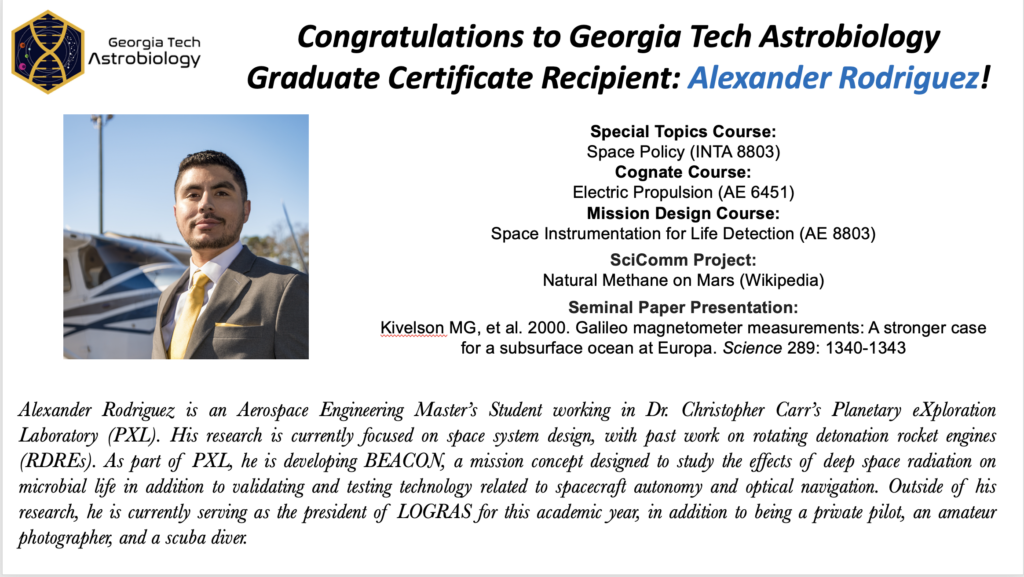
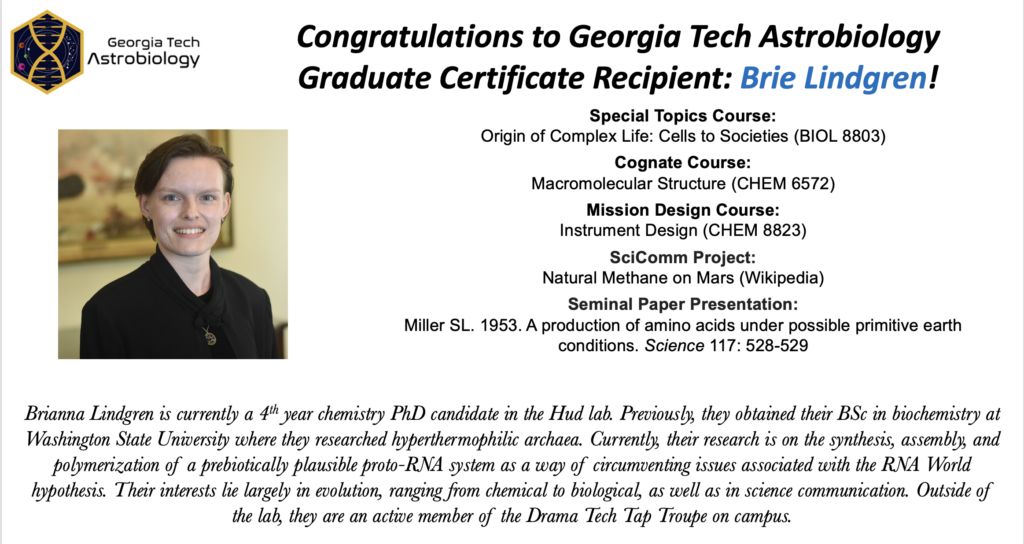
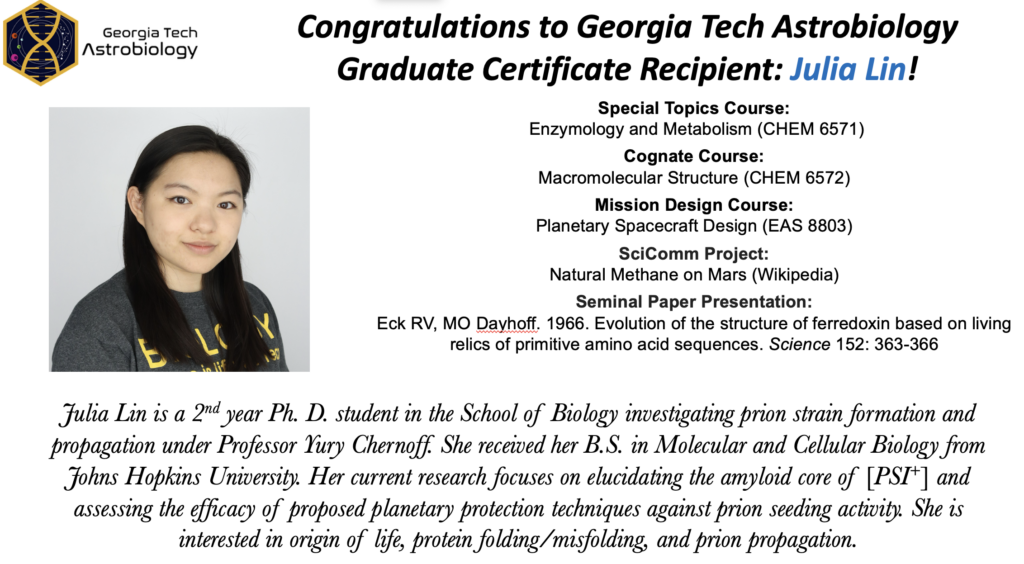
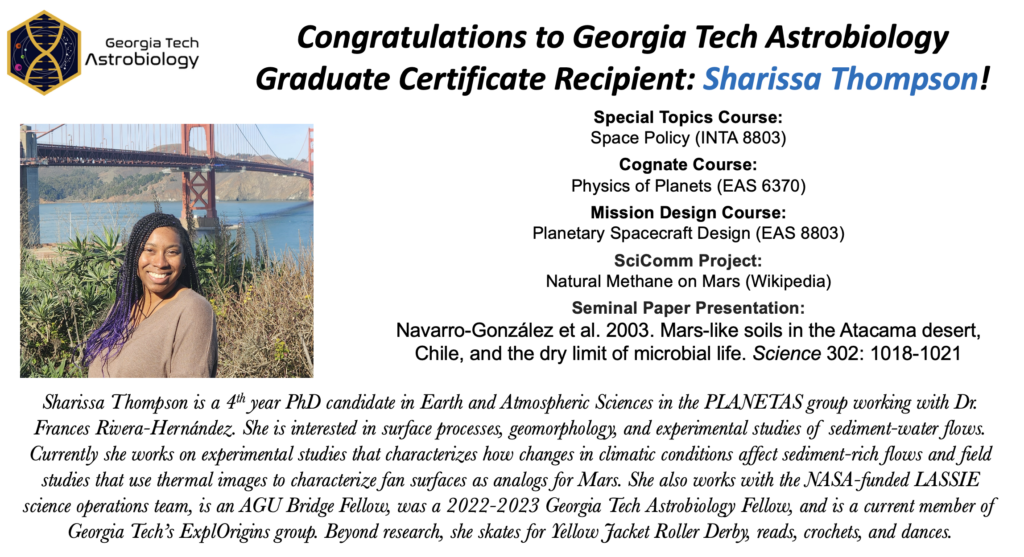
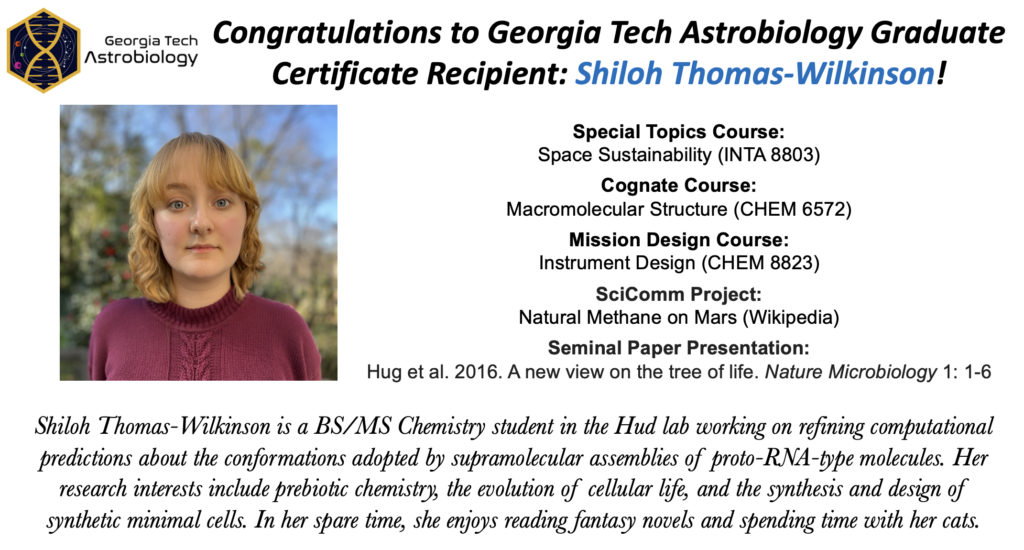





Congratulations to our newest astrobiology graduate certificate recipient, Briana Paul!


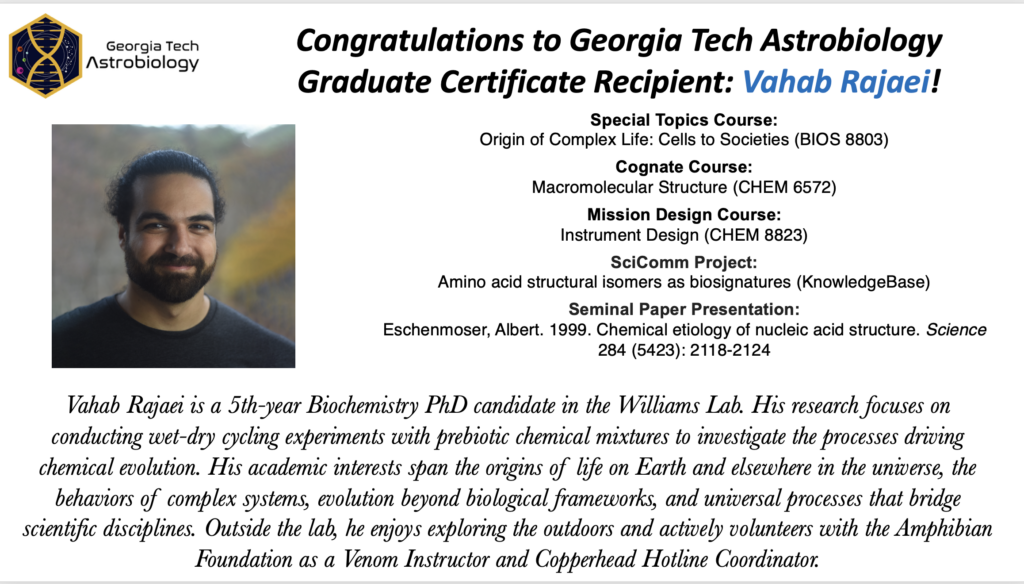
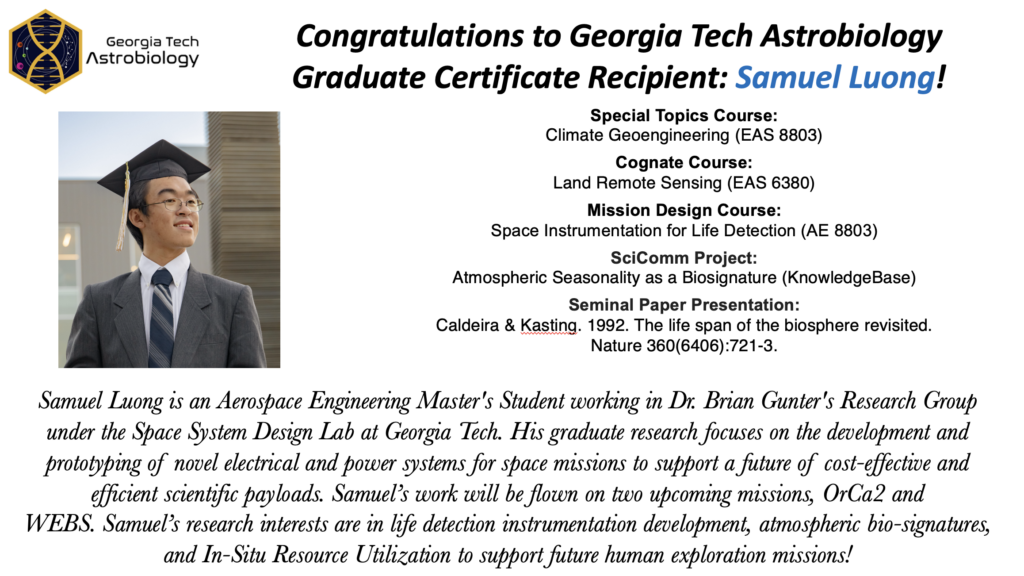
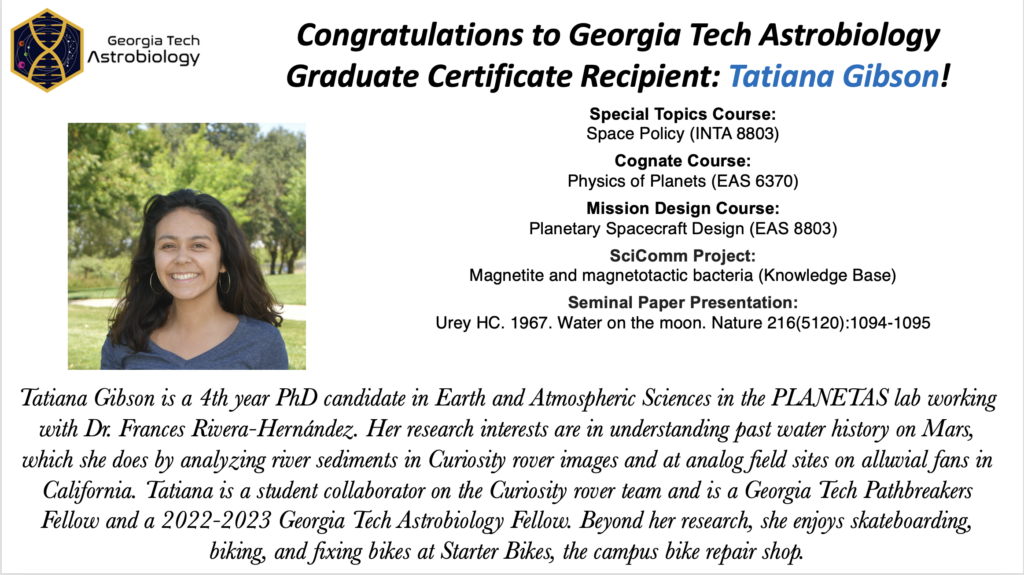

Congratulations to our latest astrobiology graduate certificate recipient, Biya Haile!

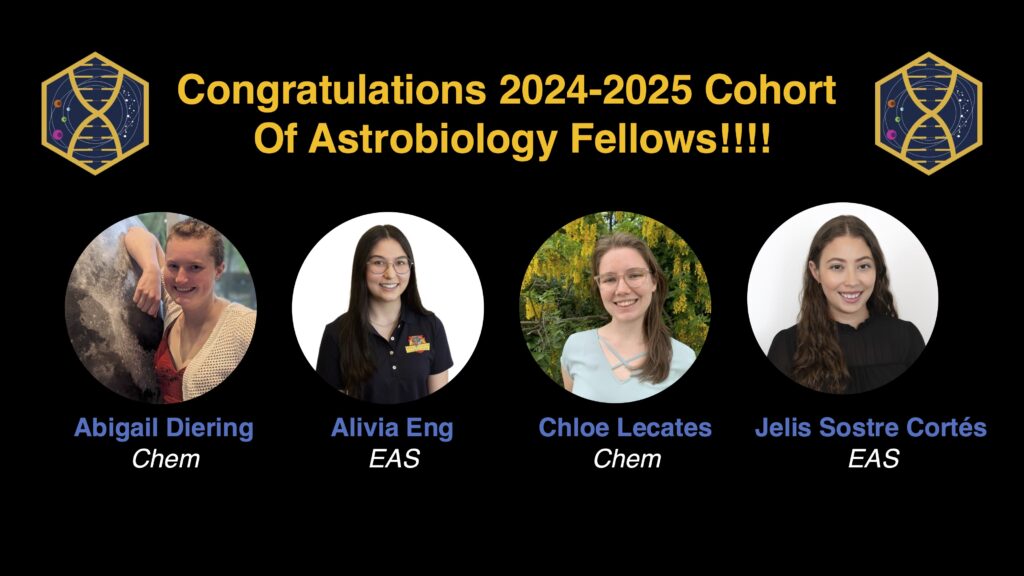
On behalf of the Georgia Tech Astrobiology Program, we are pleased to announce our new class of Astrobiology Fellows: Abigail Diering, Alivia Eng, Chloe Lecates, and Jelis Sostre Cortés. Please join me in congratulating them all!
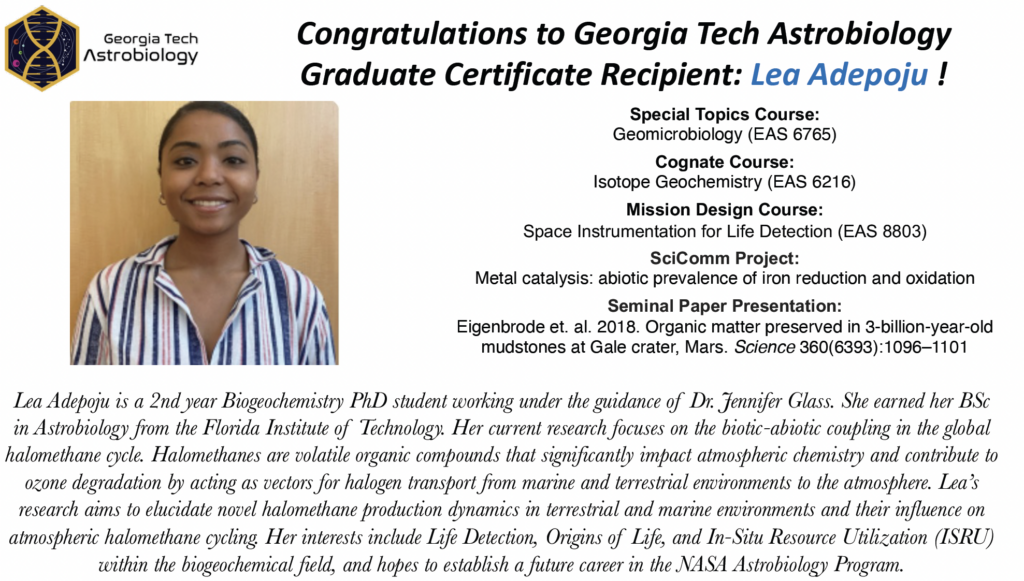
Congratulations to Lea Adepoju, our latest Astrobiology Graduate Certificate Recipient!